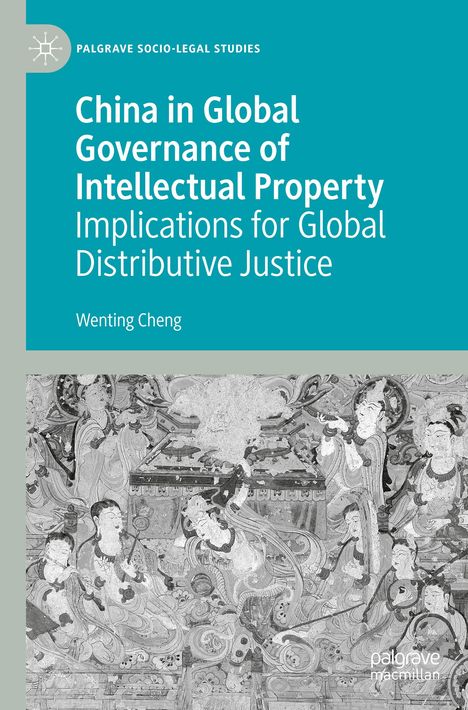Wenting Cheng: China in Global Governance of Intellectual Property
China in Global Governance of Intellectual Property
Buch
- Implications for Global Distributive Justice
- Springer International Publishing, 02/2024
- Einband: Kartoniert / Broschiert, Paperback
- Sprache: Englisch
- ISBN-13: 9783031243721
- Artikelnummer: 11764028
- Umfang: 320 Seiten
- Nummer der Auflage: 24001
- Auflage: 1st edition 2023
- Gewicht: 487 g
- Maße: 235 x 155 mm
- Stärke: 18 mm
- Erscheinungstermin: 11.2.2024
Achtung: Artikel ist nicht in deutscher Sprache!
Weitere Ausgaben von China in Global Governance of Intellectual Property
Klappentext
This book analyses how China has engaged in global IP governance and the implications of its engagement for global distributive justice. It investigates five cases on Chinäs IP engagement in geographical indications, the disclosure obligation, IP and standardisation, and its bilateral and multilateral IP engagement. It takes a regulation-oriented approach to examine substate and non-state actors involved in Chinäs global IP engagement, identifies principles that have guided or constrained its engagement, and discusses strategies actors have used in managing the principles. Its focus on engagement directs attention to processes instead of outcomes, which enables a more nuanced understanding of the role that China plays in global IP governance than the dichotomic categorisation of China either as a global IP rule-taker or rule-maker.This book identifies two groups of strategies that China has used in its global IP engagement: forum and agenda-related strategies and principle-related strategies. The first group concerns questions of where and how China has advanced its IP agenda, including multi-forum engagement, dissembling, and more cohesive responsive engagement. The second group consists of strategies to achieve a certain principle or manage contesting principles, including modelling and balancing. It shows that Chinäs deployment of engagement strategies makes its IP system similar to those of the EU and the US. Its balancing strategy has led to constructed inconsistency of its IP positions across forums. This book argues that China still has some way to go to influence global IP agenda-setting in a way matching its status as the second largest economy.


